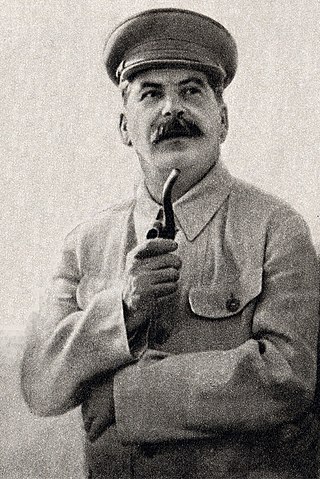
Joseph Vissarionovich Stalin was a Soviet politician, political theorist and revolutionary who led the Soviet Union from 1924 until his death in 1953. He held power as General Secretary of the Communist Party of the Soviet Union (1922–1952) and Chairman of the Council of Ministers of the Soviet Union (1941–1953). Ideologically adhering to the Leninist interpretation of Marxism, he formalised these ideas as Marxism–Leninism, while his own policies are called Stalinism.

Lev Davidovich Bronstein, better known as Leon Trotsky, was a Russian revolutionary, politician, and political theorist. He was a central figure in the establishment of Soviet Russia and the Soviet Union. Ideologically a Marxist, Trotsky's writings and thought inspired a major school of the ideology known as Trotskyism.

Lavrentiy Pavlovich Beria was a Georgian Bolshevik and Soviet politician, Marshal of the Soviet Union and state security administrator, chief of the Soviet security, and chief of the People's Commissariat for Internal Affairs (NKVD) under Joseph Stalin during the Second World War, and promoted to deputy premier under Stalin in 1941. He officially joined the Politburo in 1946.
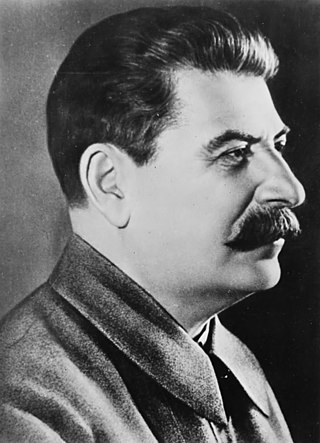
Stalinism is the means of governing and Marxist–Leninist policies implemented in the Soviet Union (USSR) from 1927 to 1953 by Joseph Stalin. It included the creation of a one-party totalitarian police state, rapid industrialization, the theory of socialism in one country, collectivization of agriculture, intensification of class conflict, a cult of personality, and subordination of the interests of foreign communist parties to those of the Communist Party of the Soviet Union, deemed by Stalinism to be the leading vanguard party of communist revolution at the time. After Stalin's death and the Khrushchev Thaw, a period of de-Stalinization began in the 1950s and 1960s, which caused the influence of Stalin's ideology begin to wane in the USSR.

Vyacheslav Mikhaylovich Molotov was a Russian and later Soviet politician and diplomat, an Old Bolshevik, and a leading figure in the Soviet government from the 1920s onward. He served as Chairman of the Council of People's Commissars from 1930 to 1941 and as Minister of Foreign Affairs from 1939 to 1949 and from 1953 to 1956.

Richard Sorge was a German journalist and Soviet military intelligence officer who was active before and during World War II and worked undercover as a German journalist in both Nazi Germany and the Empire of Japan. His codename was "Ramsay" (Рамза́й). A number of famous personalities considered him one of the most accomplished spies.
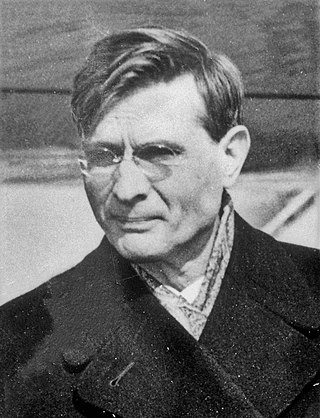
Mikhail Andreyevich Suslov was a Soviet statesman during the Cold War. He served as Second Secretary of the Communist Party of the Soviet Union from 1965, and as unofficial chief ideologue of the party until his death in 1982. Suslov was responsible for party democracy and power separation within the Communist Party. His hardline attitude resisting change made him one of the foremost orthodox communist Soviet leaders.

A show trial is a public trial in which the guilt or innocence of the defendant has already been determined. The actual trial has as its only goal the presentation of both the accusation and the verdict to the public so they will serve as both an impressive example and a warning to other would-be dissidents or transgressors.
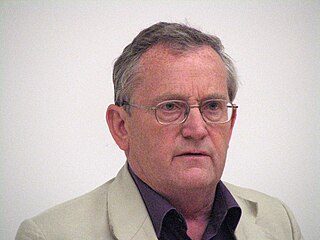
Robert John Service is a post-revisionist British historian, academic, and author who has written extensively on the history of the Soviet Union, particularly the era from the October Revolution to Stalin's death. He was until 2013 a professor of Russian history at the University of Oxford, a Fellow of St Antony's College, Oxford, and a senior Fellow at Stanford University's Hoover Institution. He is best known for his biographies of Vladimir Lenin, Joseph Stalin, and Leon Trotsky. He has been a fellow of the British Academy since 1998.
Noel Haviland Field was an American communist activist, diplomat, and spy for the NKVD, whose activities before and after World War II allowed the Eastern Bloc to use his name as a prosecuting rationale during the 1949 Rajk show trial in Hungary, as well as the 1952 Slánský show trial in Czechoslovakia.
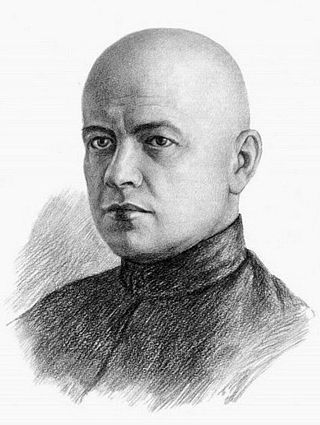
Stanisław Vikentyevich Kosior, sometimes spelled Kossior, was a Soviet politician who was First Secretary of the Communist Party of Ukraine, Deputy Premier of the Soviet Union and member of the Politburo of the Communist Party of the Soviet Union (CPSU). He and his wife were both executed during the Great Purge.
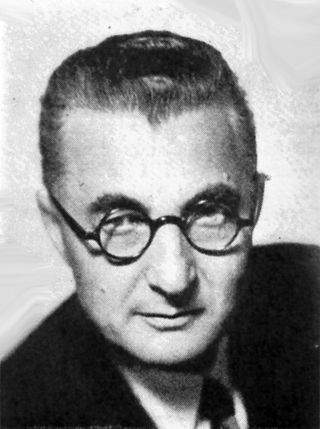
Karl Kilbom was a Swedish politician and one of the founders of the Communist Party of Sweden.

Ignace Reiss – also known as "Ignace Poretsky," "Ignatz Reiss," "Ludwig," "Ludwik", "Hans Eberhardt," "Steff Brandt," Nathan Poreckij, and "Walter Scott " – was one of the "Great Illegals" or Soviet spies who worked in third party countries where they were not nationals in the late 1920s and 1930s. He was known as a nevozvrashchenec ("unreturnable").

Seventeen Moments of Spring is a 1973 Soviet twelve-part television series, directed by Tatyana Lioznova and based on the novel of the same title by Yulian Semyonov.

Mikhail Vasilyevich Frunze was a Soviet revolutionary, politician, army officer and military theorist. Born to a Romanian father and a Russian mother in Russian Turkestan, Frunze attended the Saint Petersburg Polytechnical University and became an active member of the Russian Social Democratic Labour Party (RSDLP). Following the RSDLP ideological split, he sided with Vladimir Lenin's Bolshevik faction. He led the textile workers strike in Ivanovo during the 1905 Russian Revolution, for which he was later sentenced to death before being commuted to life-long hard labour in Siberia. He escaped ten years later and took active part in the 1917 February Revolution in Minsk and the October Revolution in Moscow.

Georgy Maximilianovich Malenkov was a Soviet politician who briefly succeeded Joseph Stalin as the leader of the Soviet Union. However, at the insistence of the rest of the Presidium, he relinquished control over the party apparatus in exchange for remaining Premier and first among equals within the Soviet collective leadership. He then became embroiled in a power struggle with Nikita Khrushchev that culminated in his removal from the premiership in 1955 as well as the Presidium in 1957.
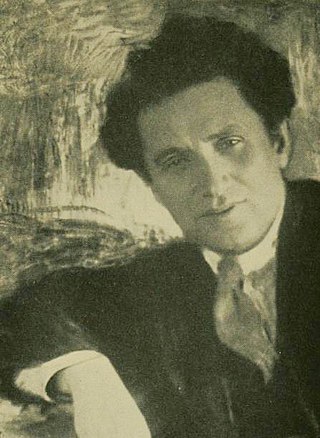
Grigory Yevseyevich Zinoviev was a Soviet revolutionary and politician. He was an Old Bolshevik and a close associate of Vladimir Lenin. During the 1920s, Zinoviev was one of the most influential figures in the Soviet leadership and the chairman of the Communist International.
Anti-revisionism is a position within Marxism–Leninism which emerged in the 1950s in opposition to the reforms of Soviet leader Nikita Khrushchev. Where Khrushchev pursued an interpretation that differed from his predecessor Joseph Stalin, the anti-revisionists within the international communist movement remained dedicated to Stalin's ideological legacy and criticized the Soviet Union under Khrushchev and his successors as state capitalist and social imperialist.

Joseph Stalin, second leader of the Soviet Union, died on 5 March 1953 at his Kuntsevo Dacha at the age of 74, after suffering a stroke. He was given a state funeral in Moscow on 9 March, with four days of national mourning declared. The day of the funeral, hundreds or thousands of citizens present in the area to pay their respects died in a human crush.

Pavel Fyodorovich Yudin was a Soviet philosopher and Communist Party official specialising in the fields of culture and sociology, and later a diplomat.

















